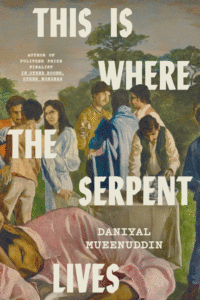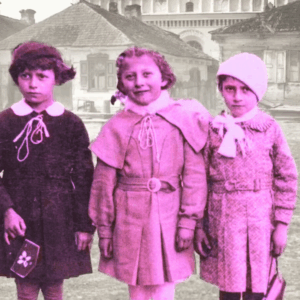
Salman Rushdie on Letter Writing, Fairy Tales, and Drinking with Gunter Grass
In Conversation with Paul Holdengraber
In part one of their conversation, Salman Rushdie and Paul Holdengraber discuss the dismal science, bad times at boarding school, and the enduring lessons of Orpheus and Eurydice.
Salman Rushdie on how weird it is to use a landline…
I tend not to use the landline. Nobody uses the landline except when talking to you, Paul.
Salman Rushdie on letter writing as an early form of fiction…
I was a very bad letter writer. Actually, I now have a lot of letters, because my parents saved them, and so I’ve inherited them. And they’re full of apologies for not having written. All of the letters begin with, I’m really sorry I haven’t written. And then, the usual kinds of fake explanations for why I haven’t written, how busy I’ve been at boarding school, or university. In many ways, those letters were my first works of fiction, because I was very unhappy at boarding school. But I didn’t want my parents to feel that, because my mother certainly felt very sad that I was sent away from home, and wished that I hadn’t been, and my father was spending all this money and taking all this trouble to give me a foreign education in England. So I would make up how happy I was.
Salman Rushdie on the usefulness of studying history at Cambridge…
One of the first things you learn when you study history, is that history is not a given. It’s not simply something that is set in stone. History is an act of interpretation. Every age rewrites the history of the past in its own image, in the image of the things that it cares about. So history is an imaginative act. And very often, especially in our time, history is very contested ground. Different groups have very different narratives of the same period. For example, in the Middle East, you could say that there are two historical narratives competing for the same space. There is the Israeli and Palestinian narrative, which are both historical narratives, but which have such radically different readings of history that they are just about incompatible. So that idea of history, that it is something that is contested ground, that is fought over, argued over, is something you learn very early on in the study of history. And that teaches you something as a writer of novels about how to interpret the world you live in: that things are not simply absolutes, that your reality is not absolutely given, it’s a thing that we construct.
Salman Rushdie on the power of fairy tales, folktales, and myths…
The thing about fairy tales, folktales, and mythology, is that these things very much contain the collective wisdom of the human race. These beautiful little things into which an enormous amount of moral, practical information is packed. So, if you take something—not a fairy tale, but a myth—the mythical tale of Orpheus and Eurydice, you can actually tell that story in a hundred words or less. It’s a story you can tell very briefly. Orpheus loves Eurydice, she dies, he chases her into the underworld, he tries to win her back, but he makes a mistake and loses her. Now, the point about this story is that while it’s a simple tale, it contains an incredible power. There is in it a triangle between the points art, love, and death. And it asks very profound questions about the relationship between those three things. If you wanted to be optimistic, you could say that in the story of Orpheus, by the exercise of his art, which is his singing, which opens the gates of the underworld and allows him to come find her, overcomes death. Or you could say, pessimistically in the same story, that death, in spite of love, overcomes art. So, very very deep questions between the relationship between art, love, and death, and asked in this very short story. All fairy tales, folktales, myths, have that power, they’re like compressible little bombs of meaning.
Salman Rushdie on becoming friends with Gunter Grass…
He was initially quite guarded with me. He was the old master, and I was the new kid on the block. And I was supposed to make my genuflection, which as it happened was easy to do because I was such an admirer of his. I spoke at some length about my admiration for his work, and there was a moment when he decided that that was enough genuflection, and then he led me over to a cabinet, in which he kept a beautiful collection of antique glasses—no two were the same—little schnapps classes, and he said, choose one. And so I chose one, and then he chose one, and he got out the bottle of schnapps, then we became friends.



















